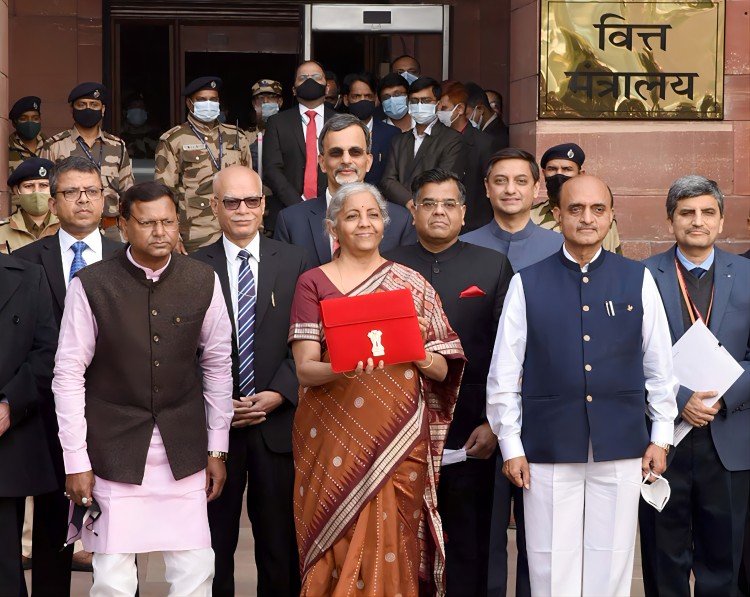India urged to incentivise energy storage manufacturing and deployment with Union Budget

As India’s Union government prepares the fiscal year 2024-2025 budget for its unveiling, trade group India Energy Storage Alliance (IESA) has offered some recommendations to support the technology.
IESA said it hoped to see changes to tax schemes, extensions to direct support for domestic manufacturing, and a major focus on training up a skilled workforce, when finance minister Nirmala Sitharaman presents the Union Budget, 1 February 2024.
The government is already known to be keen to support the development of large-scale energy storage system facilities as a key tool for integrating the 500GW of non-fossil fuel energy generation it is targeting the deployment of by 2030 and in extending access to electricity across the country.
Last year’s Union Budget included an announcement of Viability Gap Funding for 4GWh of projects as part of a US$4 billion ‘Green Growth’ package of capital investments into energy transition and net zero initiatives.
While last year’s budget was warmly welcomed by the trade association – as was the previous year’s – IESA said on Friday (19 January) that its proposed changes to tax regimes would aid downstream demand creation and encourage domestic companies to play a bigger role in the manufacture and supply of equipment.
“As the Hon’ble finance minister will soon be leading the Budget Session of the parliament this year, we wish to take this opportunity to draw her kind attention to the industry expectations,” IESA founder and president Dr Rahul Walawalkar said.
“India has a great opportunity to become a global hub for supply chain of advanced battery manufacturing ecosystem.”
What the IESA has recommended:
10-year Tax Holidays: Battery storage projects charging from renewable energy sources either as standalone or hybrid resources, as well as transmission-connected battery storage, should be eligible for tax holidays.
Free trade agreement country imports: Exemptions should be made for customs and excise duties on imported energy storage system (ESS) goods from certain countries, particularly those with which India has free trade agreements.
Uniform Goods and Sales Tax at low rate: A uniform low rate of 5% Goods and Sales Tax (GST) should be applied to all batteries. At present, the rate levied on lithium-ion is 18%. A lowered GST could be “a game changer in facilitating the expansion of large-scale energy storage deployment across the country,” IESA said.
Remove double charging: The bane of energy storage’s existence in many markets – as has been heard many times from Europe’s energy storage industry – and an obvious barrier to investment, is the levying of charges for using the grid twice. IESA said Electricity Duty and Cross Subsidy Surcharges, currently levied when injecting power into the grid and again when consuming (charging) from it. Only the final consumption of electricity should be charged for.
Separately, IESA also called for more direct support to the battery and storage system manufacturing sectors, asking the government to extend the Production Linked Incentive (PLI) scheme programme through which the creation of around 50GWh of advanced cell production lines is being supported. PLI should be doubled to 100GWh, the trade group said.
At the same time, IESA called for duties to be put on imports of cells and supply chain components including raw and processed materials, which it said would be important in enabling domestic producers to become competitive.
IESA also called for other measures including funding for domestic R&D initiatives and the launch of programmes to develop a skilled workforce that could both contribute to the international industry and address skill gaps within India.
IESA executive director Debi Prasad Dash also suggested in a statement that the government consider “ establishing a central institution called the National Institute for Energy Storage to advance India’s R&D roadmap in this sector”.
IESA’s recommendations to finance minister Sitharaman in 2023 also included the Tax Holidays and 5% GST changes. While those asks were ultimately not granted last year, Dr Rahul Walawalkar told Energy-Storage.news in February last year that the alliance was overall “very happy” with the direction of the previous budget in an in-depth interview.
Recent research from the Institute for Energy Economics and Financial Analysis (IEEFA) and JMK Research found that with around 60GW of energy storage likely to be deployed by 2029-2030 in India, storage will be the “major disruptor” of the country’s electricity sector in the coming years. The reported noted that as well as batteries, pumped hydro energy storage (PHES) will play a major role, with competitive tenders the likely route for scaling up deployment.
Energy-Storage.news’ publisher Solar Media will host the 2nd Energy Storage Summit Asia, 9-10 July 2024 in Singapore. The event will help give clarity on this nascent, yet quickly growing market, bringing together a community of credible independent generators, policymakers, banks, funds, off-takers and technology providers. For more information, go to the website.
Next:Turkey pre-licenses 25.6GW of colocated energy storage, slaps 30% duties on imported LFP
Previous:California solar-plus-storage project with world largest BESS fully online
